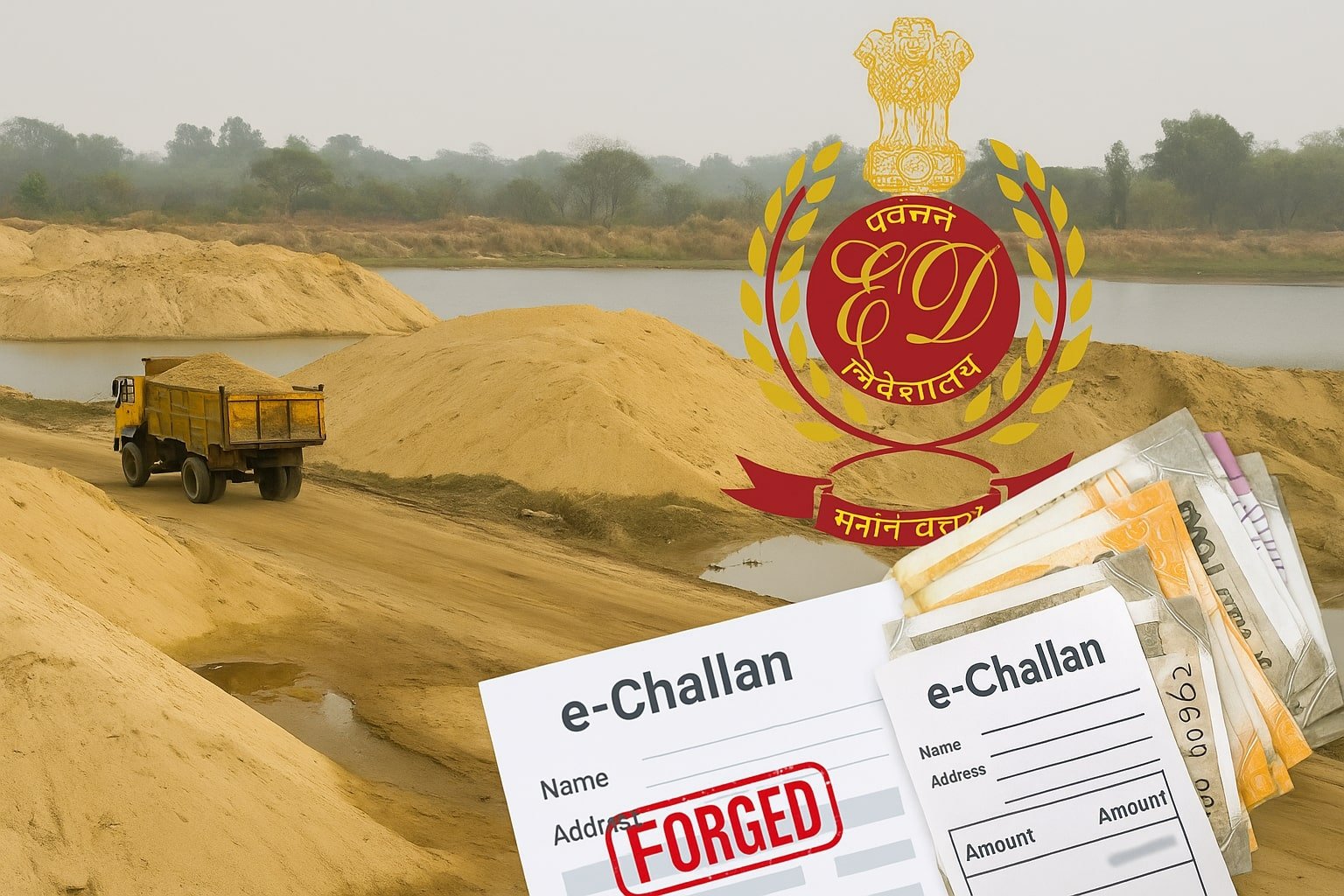Kolkata | The Directorate of Enforcement (ED), Odisha Zonal Office, has arrested Atul Saraf, promoter of G.D. Mining Private Limited, in connection with an illegal sand mining and money laundering case. Saraf was taken into custody on November 6, 2025, under Section 19 of the Prevention of Money Laundering Act (PMLA), 2002) and has been remanded to ED custody till November 14, 2025.
The investigation stems from a series of FIRs filed by the West Bengal Police, which alleged theft and illegal sale of sand through forged road e-challans issued by G.D. Mining Pvt. Ltd. According to one FIR, two sand-laden trucks were intercepted near Bhasra Bridge, found transporting stolen sand using fake digital challans purportedly generated by the company. Police subsequently seized the vehicles and the forged documents, triggering a wider financial probe by the ED.
Forged Documents Used to Cover Up Sand Theft
The ED’s inquiry revealed that Saraf played a central role in orchestrating the illegal sand mining network, using forged documentation to facilitate the transport and sale of stolen sand from riverbeds and unauthorized stock points. Investigators found that forged e-challans were systematically issued to make the operations appear legitimate.
Earlier, on September 8, 2025, the ED conducted searches at 16 premises linked to the accused across Kolkata and Jhargram, seizing ₹29 lakh in cash, several incriminating documents, and digital evidence. The agency also identified details of multiple movable and immovable assets connected to the suspects.
Illegal Proceeds Routed Through Legitimate Accounts
According to the ED, proceeds from the illegal sand trade were funnelled into regular business accounts through unexplained cash deposits and accounting manipulation. This method allowed the accused to launder illicit income and present it as legitimate business revenue.
The agency suspects that the fraudulent use of e-challans was not limited to a few isolated incidents but was part of a larger, organized racket operating across parts of West Bengal and adjoining states.
Wider Network Under ED Scanner
Sources said the ED is now examining the role of other individuals and entities, including possible beneficiaries and facilitators, in the illegal sand trade. Investigators are focusing on tracing the flow of illicit funds, identifying the layering and placement of proceeds of crime, and determining whether political or administrative links aided the operations.
Officials familiar with the probe said, “The modus operandi indicates a well-organized system of sand theft, document forgery, and financial concealment. Further arrests cannot be ruled out.”
The ongoing investigation aims to establish the full extent of the racket and quantify the proceeds of crime involved. If proven, the case could expose one of the largest organized sand mining and laundering networks in eastern India.


